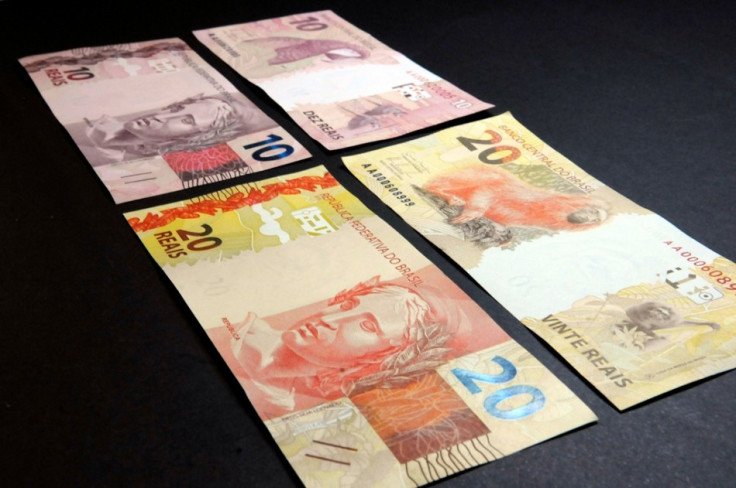Brazil's Real Down to Near 10-Year Low and Stocks Slump on Fears of Dilma Rousseff Return

Brazil's real has plummeted to a near ten-year low ahead of Sunday's presidential election with the incumbent Dilma Rousseff strengthening her chances of return defeating the market-friendly Aecio Neves.
The USD/BRL rose to as high as 2.5160 on Thursday, its highest since early 2005, before ending 1.4% down on the day at 2.5130. The real was not helped by data on 23 October that showed the rate of unemployment fell to 4.9% in September from 5% in August.
The real had fallen to a multi-year low of 2.4773 in September, in which month it ended 8.9% lower.
In early October, the Latin American major had recovered to 2.3647 against the greenback when Neves saw his popularity increasing after the first phase of polling on 5 October.
The real then lost ground again with the recent opinion polls showing Rousseff ahead of Neves in the electoral race. At Thursday's weakest point, the Brazilian currency was down more than 10% from the year's high touched in April.
In contrast, the real's regional peers show a divergent trend. The Chilean peso has rallied 2.7% so far in October, snapping a three-month losing streak that had taken it to a five-year low of 604.10 last month.
Neves has promised business-friendly policies to boost Brazil's sagging economy, while Rousseff has said she will build on the policies that have lifted millions of Brazilians out of poverty during the past 12 years, according to a Reuters report.
Analysts say that the economic development so far under Rousseff, which is being highlighted by her citing falling unemployment, could increase her chances of return.
Brazilian stock markets too have fallen on fears of Rousseff's return. The Bovespa index ended 3.2% down, while its regional peers like Mexican and Chilean indices were up.
The companies that investors expect to suffer further under a second Rousseff administration are banks Itau Unibanco and Bradesco, as well as oil producer Petrobras - all dropped at least 4.5% on Thursday - according to Reuters.
The year-on-year growth rate of industrial production has been in negative territory since March and so is the retail sales growth since July.
Inflation is accelerating, putting more pressure on the central bank to stay less accommodative of any stimulus.
The year-on-year rate of price rises has increased to a three-year high of 6.75% in September from 5.6% in January.
The second round of election is on 26 October and the central bank will set rates on 30 October.
Accelerating inflation will weigh on the decision even if policymakers would want to boost growth by slashing the benchmark interest rate from 11% at present.
© Copyright IBTimes 2024. All rights reserved.






